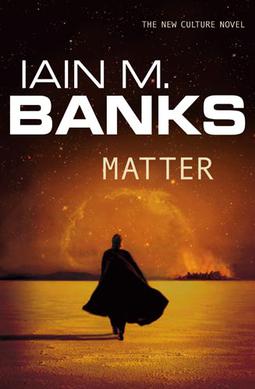
Particularly new is the majority setting of the novel, Sursamen, an ancient and bizarre shellworld. These worlds consist of a series of concentric spheres, Russian doll style, over which different civilizations have dominion. The shellworlds are the remains of a galaxy-wide system of unknown purpose, whose builders have almost completely left the galactic stage. On Sursamen, the humanoid Sarl live a pre-industrial and feudal existence, dimly aware of the more powerful civilizations around them. However, as the story unfolds, these civilizations have goals in which the Sarl are merely pawns.
The novel centres on the royal family of Sarl, two brothers and a sister. In a move befitting her lowly female status, the sister, Djan, has been bartered away to an advanced civilization by the king, and has left the shellworld. As the novel opens, the two remaining brothers find their society victorious in a war over another humanoid faction. However, at the moment of victory, their father is murdered by his trusted second-in-command, tyl Loesp, an event accidentally witnessed by the older brother, Ferbin. Forced to flee, he and his manservant gradually ascend the levels of the shellworld in search of Djan, who he knows will have the technology to help him. Meanwhile, his younger brother, Oramen, oblivious to tyl Loesp's treachery, awaits his coming of age and his ascendence of the throne. Against this backdrop, the Oct, a more advanced civilization who assisted the Sarl in their victory, use them to excavate a drowned city on the level captured by the Sarl. They are single-mindedly seeking evidence of their bloodline with the builders of the shellworld, but are blind to those others who have different plans. Far off in her work with the Culture, Djan hears of the events in the shellworld, and begins her own return to Sursamen.
The novel follows the paths of the three siblings as they gradually come together, and as they become embroiled in the larger-scale events that the actions of the Oct have triggered.
In respect of its pre-industrial setting, the novel is a more satisfying version of Banks' earlier novel Inversions. That suffered from focusing far too heavily on the primitive civilization, to the extent that the direct connection with the Culture boiled down to a few sentences and a subtext. Here, Banks places the events with the Sarl in the wider context, allowing him to bring in the usual Culture "treats" (drones, Minds and aliens) and to further expand the universe of the Culture.
That said, while enjoyable, it's difficult to discern any meaning to the events in the novel. While the Oct's intervention with the Sarl could be viewed through the prism of the West's interference in the developing world, the malign turn of events that the Oct precipitate is more clearly "a bad thing", and has no strong parallel. This is unlike the previous Culture novel, Look to Windward, where, alongside the "treats", Banks wove a much more interesting moral tale that explicitly dealt with the negative, and the positive, sides of the Culture's own interventions. This novel is much more of a rollercoaster ride.
Nonetheless, Banks again reveals himself as a master storyteller. The backdrop of the shellworlds is handled brilliantly, with their scale and history gradually drawn out as the novel progresses. Banks also succeeds in populating his universe even more fully than normally with a succession of competing and political civilizations. He also invests in his characters, with the spoilt brothers gradually evolving responsibility and facing up to their challenges. Djan, who has long since had her eyes opened by her adoption in the Culture, is at once a more sympathetic character, though her worldliness means that character growth is less pronounced.
Anyway, as noted here before, Banks is really the author to beat in Space Opera. Asher et al. don't really come close (no matter how much they adopt his material). If only Banks wrote more frequently.









No comments:
Post a Comment